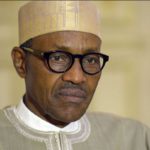The House of Representatives said on Sunday that the National Assembly did not expect a post-budget dispute with President Muhammadu Buhari over the 2018 budget.
The Deputy Chairman, House Committee on Appropriations, Mr. Chris Azubuogu, told The PUNCH exclusively that the reason was that the N9.12tn document was a product of mutual understanding between the two sides.
The Senate and the House had passed the budget on May 16 and followed it up by transmitting it to Buhari on Friday last week.
What is left is for the President to append his signature to the 2018 Appropriation Bill to become an Act.
Azubuogu stated that for the National Assembly, it did not expect that there would be any quarrel over the budget since both sides already held extensive deliberations on it prior to the passage.
He said, “All the things they wanted us to do, we did. When we wanted to change the benchmark, we all agreed with them and the reasons for doing so are there. They know and we know.
“(Crude) oil was between $50 and $51 per barrel when they brought the budget. Today, it is around $80. So, we agreed that let the benchmark be $51. That was why we set it at $51, up from the $45 that came with the budget to the National Assembly.”
Azubuogu also explained that the budget was planned to build on the performance of the 2017 budget, which he said, “scored above 60 per cent, unknown to many people.”
The 2018 budget carries as much as N2.2tn for debt servicing, out of the total of N9.12tn.
A breakdown of the huge debt service provision indicates that N1.75tn will be spent on domestic debts, while foreign debt service will cost the country N254.07bn.
The sum of N190bn was appropriated for “Sinking Fund for retiring maturing debts,” bringing the total debt service bill to N2.2tn.
In 2017, debt servicing gulped N2.014tn.
In addition, the 2018 budget passed on May 16 was raised by over N508bn.
The original estimates presented to the legislature on November 7 by Buhari totalled N8.612tn.
The additional N508bn to the budget’s size was reflected in the sectoral allocations to Ministries, Departments and Agencies.
For example, in Buhari’s estimates, the recurrent expenditure was captured as N3.494tn.
But, the legislature passed N3.516tn as the new recurrent expenditure.
Similarly, the development fund for capital expenditure was raised to N2.869tn from the N2.652tn the President presented on November 7.
The provision for statutory transfers also rose to N530.421bn from N456bn.
For sectoral allocations, the Ministry of Power, Works and Housing got the combined highest vote of N714.6bn for recurrent and capital costs. Buhari’s total was N555.88bn.
Out of the N714.6bn, the ministry received N682.9bn for capital projects, leaving the balance of N31.7bn for recurrent spending.
Source: Punch



